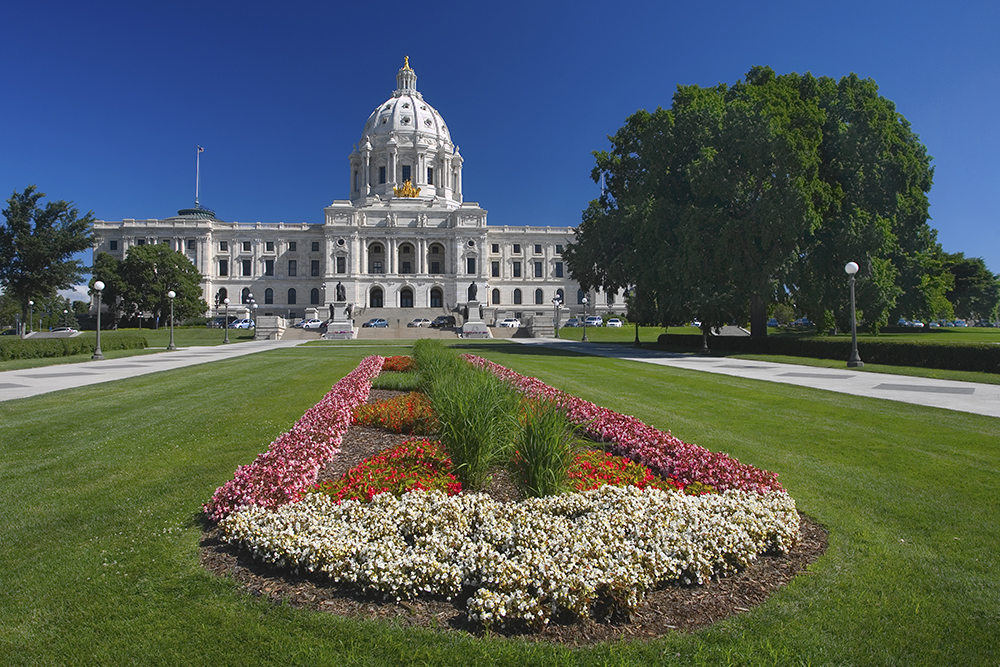
As the brief 2016 legislative session ended, it was clear that this session would end like the 2015 legislative session did, riddled with missed opportunities to protect Minnesota’s environment and public health. The legislature managed to pass a $182 million supplemental budget bill that included environment and natural resources, and agriculture provisions. While lawmakers did act favorably on a few of our priorities, they failed miserably in other areas including: advancing clean energy, safeguarding public health, funding cleanup of the St. Louis River, and funding important modernization of aging drinking water and wastewater treatment systems.
Here are three big victories that would not have happened without the support and advocacy of Clean Water members across Minnesota:
Forever Green
This program provides $1 million to fund an initiative at The University of Minnesota to accelerate development of cover crops and perennial crops that protect water quality and enhance wildlife habitat.
Working Lands Watershed Restoration Program
This program lays the groundwork for creating a state-funded biofuels incentive program from perennial feedstock instead of corn. This will diversify our agricultural landscape and help ensure continuous living cover that protects soil health and water quality while maximizing economic return for producers.
Updates to the Minnesota Electronic Recycling Act
This legislation passed this session made important updates to the existing law by:
- Basing the manufacturers' obligation on the weight of volume collected, not weight of sales as in the current statute, ensuring that manufacturers are bearing their share of the costs of the program.
- Setting statewide recycling goals for manufacturers of video display devices (TVs and computers) for the next three program years. The goals are 25 million lbs the first year, 23 million lbs the second year, and 21 million lbs the third year (the current goal is 18 million pounds.)
- Requiring manufacturers to cover the cost of transporting e-waste to recyclers. This is a significant cost savings for local governments.
- Requiring that electronics can only be sent to recyclers that are certified by an accredited third party certification body, to ensure that all electronic waste that is managed according to the highest environmental standards.
Reminiscent of the 2015 legislative session, our lawmakers once again missed multiple opportunities to pass policies that would protect Minnesota’s environment and public health. Clean Water Action and our members organized for the following policies that the legislature failed to pass:
The Firefighter and Children’s Health Protection Act
The Firefighter and Children’s Health Protection Act would prohibit four toxic flame retardants from upholstered furniture, mattresses and children’s products. We worked in close partnership with the Minnesota Professional Firefighter’s Union to advance this bill and mobilized hundreds of Clean Water Action members to write comments to lawmakers, along with several published letters to the editor in the Star Tribune and local papers. While this bill to protect the health of firefighters and families passed the Senate 46 to 15, leadership in the House did not allow the bill to move.
The Toxic Free Kids Act
The Toxic Free Kids Act (TFKA) would require manufacturers to disclose when they are using any chemicals identified as toxic, Priority Chemicals in a children’s product. TFKA will also provide an incentive for manufacturers to reduce or phase out their use of Priority Chemicals in favor of safer alternatives.
Moratorium on Recycled Tire Mulch and Crumb Rubber
The bill would establish a moratorium on the use of public funds for new playgrounds and athletic fields using shredded tire mulch or crumb rubber infill until July 2019. It would also require the Minnesota Department of Health to review and evaluate a report to be issued by the California Office of Environmental Health Hazard Assessment and report back to the Minnesota legislature on potential health risks to children and athletes of continued use of waste tires for playgrounds and require signage to caution users of existing playgrounds and athletic fields of potential exposure and ways to reduce exposure to toxins in waste tire material.
Clean Water Action organized an informational hearing in the House to educate lawmakers on the health hazards related to this issue, and a forum for parent activists from Minneapolis and Edina to highlight local impacts. Our field canvass continues to educate communities about the health and environmental concerns, and has collected hundreds of postcards in support of a state moratorium.
Fragrance Ingredient Disclosure
This bill would require manufacturers to disclose fragrance ingredients so that consumers can make safer and more informed decisions.
With much left undone when the legislature adjourned, it’s possible that Governor Dayton will call lawmakers back to St. Paul for a special session to wrap up unfinished business, it is currently unknown whether that will happen or not. Minnesotans deserve better, with the 2016 elections approaching, we need to remember that who we elect influences the behavior that will take place during legislative session and influence what bills become law.
Let’s work hard to ensure that when legislators gather in St. Paul on Tuesday, January 3rd 2017 to convene the 2017 legislative session, our elected officials are ready to roll up their sleeves and start making the protection of our environment and public health a priority.


